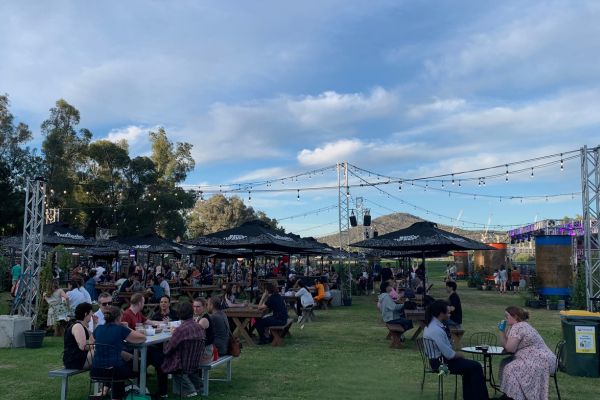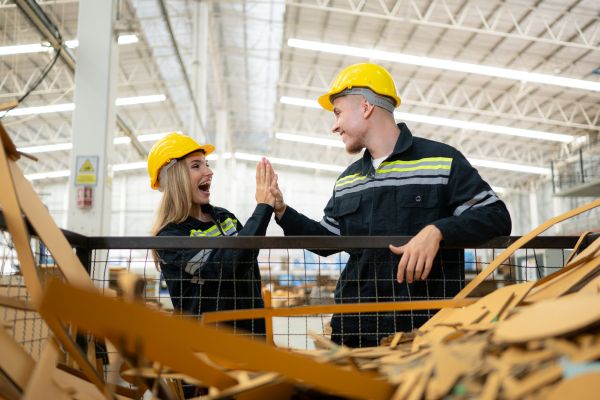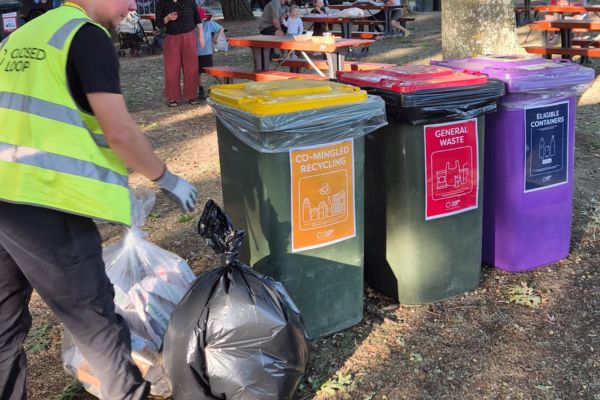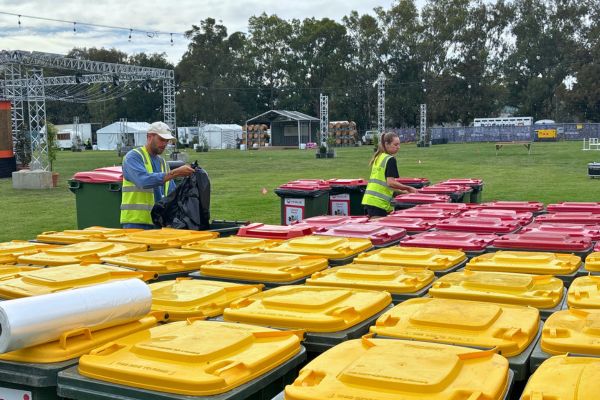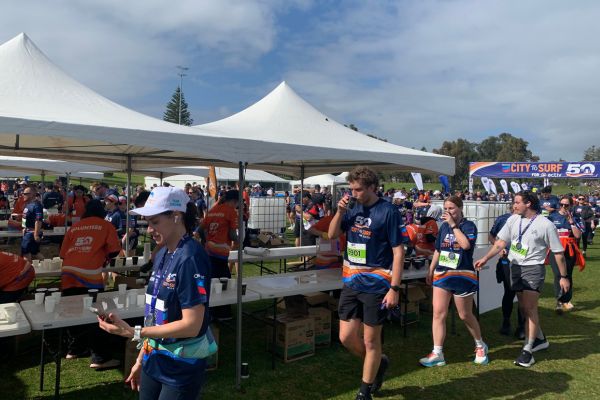How much should you budget for event sustainability?
One question I’m often asked at Closed Loop by potential clients is: “How much does your service cost?”
My usual response? The real cost is to the environment – if you don’t invest in the circular economy and sustainability.
Sure, that’s a little tongue-in-cheek, but there’s a serious point behind it. The truth is, the cost depends on a wide range of variables that shape our services. And after more than 25 years as a leading provider in the events and festival industry, we know a thing or two about the hidden costs of unsustainable practices.
So instead of simply asking “what does it cost”?, I like to flip the question: “What percentage of your ticket sales should be invested in cleaning, waste management, and sustainability at a greenfield event?”
Planning your sustainable event
When planning a greenfield event, most organisers naturally focus on talent, staging, and production. And fair enough – without those, it wouldn’t be much of an event. But one of the biggest factors in your event’s success and long-term reputation is often overlooked: sustainability. From cleaning and waste management to accurate reporting (arguably the most important piece), these elements can make or break how your event is remembered.
The reality is that how you manage waste and sustainability directly affects not only the attendee experience but also your ability to gain approvals, meet compliance requirements, and protect your brand’s reputation. A poorly managed site is what people remember – and talk about. Without accurate, transparent reporting, it’s impossible to make meaningful improvements year on year, or to demonstrate progress to your audience and governing bodies.
So, how much should you budget?
As a rule of thumb, we recommend allocating 2–4% of your ticket sales. This percentage is a proven benchmark we’ve established over many years, working across greenfield events both large and small. With 2,200 events serviced annually across Australia and New Zealand, this range provides a reliable starting point. Of course, the exact figure will depend on a number of factors, with around ±1% adjustment depending on your event’s specific needs.
Here are the key considerations that influence your spend:
- Duration of the event : A one-day concert has very different needs compared to a three-day camping festival.
- Style of event : A family-friendly community day will generate different waste streams than an EDM festival. Music events generally produce 1kg of packaging per person and a food event can easily be double that.
- Location and access : Remote or hard-to-access sites often require more logistics and transport costs.
- Demographics of attendees : Different audiences consume differently (think alcohol, food packaging, merchandise).
- Level of production : The more staging, props, and infrastructure, the more waste that needs to be managed.
- Reporting requirements : Basic waste removal is one thing; providing detailed sustainability reporting for councils, government, or sponsors requires additional planning and resources.
Processing : You don’t just want make you event sustainable, you want to make sure the materials that you are producing are processed in the correct ways.
What are some real-world examples?*
*Data taken from the 2,200 events that we service across Australia and New Zealand each year. These are a guide and a starting point. If you want a more accurate number for your event get in touch and we can help give you an estimate or quote.
- A one-day city event with 5,500 attendees allocated closer to 2.0% of ticket sales. With a contained site, controlled waste input system and limited waste streams, costs were straightforward and easily managed. 5,500 x $120 = 660,000 x 0.025 = $16,500*
- A three-day camping festival with 20,000 attendees required closer to 4%. Multiple waste streams, onsite composting, recycling initiatives, and detailed reporting for government compliance, education with measurable sustainability outcomes.
20,000 x $250 = 5,000,000 x 0.04 = $200,000*
These examples highlight why flexibility around the 2–4% benchmark.
Getting the most from your budget
Spending wisely on cleaning and sustainability isn’t just about hiring bins and cleaners. It’s about creating a strategy that everyone has to buy into:
- Plan early: Work with suppliers in advance to align infrastructure with your site layout.
- Engages attendees, contractors and site crew: Signage, bin design, and communication and training can drastically improve waste separation.
- Engage an expert: That’s us! With years of experience and a track record of sustainable events, we’ll help ensure that your event goes smoothly with the right advice.
- Delivers robust reporting: Show councils, sponsors, and attendees your sustainability outcomes and create a baseline for future improvement. The journey doesn’t stop.
- Partners with experienced providers: Regulations, waste streams, and expectations vary; working with a team that’s done it before saves time, money, and stress.
The right partner will help you maximise the impact of your budget – ensuring smooth operations, happy attendees, and a clean, compliant event site.
Allocating 2–4% of ticket sales to cleaning, waste management, and sustainability is not just a cost. It’s an investment in the success, reputation, and future approval of your event.
End note
By planning and budgeting ahead, and tailoring your spend to your event’s size, style, and goals, you’ll deliver a cleaner, safer, and more sustainable experience for everyone involved.
If you’re planning your next greenfield event and want clarity on how to structure your budget, we’d be happy to help. From early planning to post-event reporting, we work with organisers to create waste and sustainability strategies that are efficient, compliant, and attendee-friendly.
Get in touch to discuss how we can help you plan your event’s cleaning and sustainability strategy.




